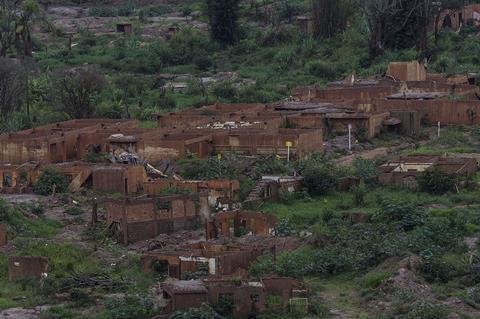Unsuccessful claimants in litigation in England over the collapse of a Brazilian dam must pay an interim £8m to cover half their opponents' costs, the High Court has ruled.
Mr Justice Turner, sitting in Municipio De Mariana & Ors v BHP Group PLC & Anor, said it was wrong to penalise the defendants for the work done on the case. The claimants' solicitors, from London firm PGMBM, have said there is no question of victims of the disaster incurring any of the costs.
In November last year, the same judge struck out group litigation on behalf of some 202,600 Brazilians claiming compensation following the collapse of the Fundao dam in Brazil in 2015, saying the task of managing such a case would be ‘irredeemably unmanageable’ if it was allowed to proceed.
Following his ruling, the judge refused permission to appeal and set out his reasons in writing. While acknowledging the complex nature and scale of the claims, he pointed out that the draft grounds of appeal were the ‘very antithesis of the conciseness required’, coming to 70 paragraphs over 39 closely-typed pages.

The judge rejected 15 separate grounds of appeal (the claimants can still go directly to the Court of Appeal) before moving onto the issue of costs.
The claimants contended that the defendants should be entitled to only half of the £16.1m costs they had incurred.
Turner J said he was ‘thoroughly unpersuaded’ that there should be any penalty for the defendants’ approach. He added the claimants ‘did not even come close’ to convincing the court to displace the general argument that unsuccessful litigants must pay the other side’s costs.
The defendants’ costs, the judge said, could be seen as extremely high, and he noted that the case had been a ‘forensic arms race’. But the scale of the litigation, the value of any successful claims and the volume of material involved could justify such sums. It was noted too that the claimants had more than 1,000 lawyers and paralegals involved in investigating, considering and pleading the claims, as well as nearly 50 English barristers. An interim £8m was awarded, to be paid by 12 February, with the rest subject to detailed assessment.
PGMBM has said it intends to challenge the ruling in the Court of Appeal. In a statement, the firm said: 'We are now seeking permission to appeal and are very optimistic. In the event of any adverse costs ruling, these would be covered by the funders and insurers of the case, not victims of the disaster.'





























32 Readers' comments